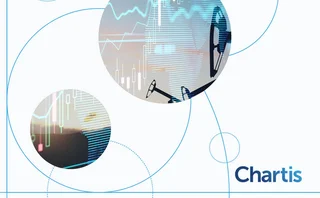
Crude surpasses $123 as Democrats blame speculators
Crude oil closed at a new record high of $123.53 a barrel on the New York Mercantile Exchange (Nymex).
West Texas Intermediate (WTI) closed up $1.69, or 1.4% from the previous record close of $121.84/bbl posted yesterday. WTI futures are nearly 100% higher than they were a year ago.
Brent crude oil for June settlement climbed $2.01, or 1.7%, to $122.32/bbl on London's ICE Futures Europe exchange. In after hours trading the contract touched a record $123.93.bbl.
A number of issues across the complex are being cited as factors contributing to crude’s record run.
An earthquake measuring 6.8 on the Richter scale was recorded off the Japanese coast, raising concerns that some of the country’s nuclear capacity may be shut down in favour of fuel oil burning power plants.
This scenario adds to a mixture of factors being touted as key price drivers, such as consistently high demand from China and India, crude's value as an inflation hedge against the falling dollar, OPEC supply restraints, supply threats in Iran, Iraq and Nigeria refinery bottlenecks in the US and the role of speculators in markets.
The latter point was taken up by Senate Majority Leader Harry Reid and Senators Jeff Bingaman, Max Baucus, Charles Schumer, Byron Dorgan, Maria Cantwell and Bernie Sanders today as they unveiled the Consumer-First Energy Act of 2008, a bill that claims to address the root causes of high gasoline prices.
One of the bill’s requirements is for the Commodities Futures Trading Commission (CFTC) to set a substantial increase in the margin requirement for all oil futures trades, contracts or transactions.
Nymex issued a statement in response. ‘In a highly transparent, regulated and competitive market, prices are affected primarily by fundamental market forces and imposing more onerous margin levels will not affect price levels,” it said
“The data consistently indicates that the percentage of open interest in NYMEX crude oil futures held by non-commercial participants (relative to commercial participants) actually decreased over the last year even at the same time that prices were increasing.”
The Exchange added that increasing crude oil margins on futures markets regulated by the CFTC would force trading volume away from regulated and transparent US exchanges onto dark unregulated venues and onto less transparent overseas markets.
At a briefing in New York Michael Cosgrove, President of Amerex Brokers LLC, a wholly owned division of GFI Group, poured scorn on the notion that speculators played a significant role in crude’s current price run. “I am unaware of any speculator who has significantly affected supply and demand in the crude market, which is the main driver,” he said.
Peter Beutel, president of energy risk management firm Cameron Hanover, said that “nothing has created as much upward pressure on food & fuel prices as the [Federal Reserve’s] ‘new transparency,’ adding that Fed’s efforts to solve the current credit crisis by lowering interest rates had sent commodity prices “into an inflationary spiral – pushing oil prices from $79 to over $120/bbl.”
In a report released yesterday led by analyst Arjun N. Murti, investment bank Goldman Sachs revised its oil price spike scenario to forecast that supply shortfalls will probably send oil to between $150 and $200 a barrel within two years.
"We believe the current energy crisis may be coming to a head, as a lack of adequate supply growth is becoming apparent and resulting in needed demand rationing in the OECD areas in particular the United States," the report noted.
Only users who have a paid subscription or are part of a corporate subscription are able to print or copy content.
To access these options, along with all other subscription benefits, please contact info@risk.net or view our subscription options here: http://subscriptions.risk.net/subscribe
You are currently unable to print this content. Please contact info@risk.net to find out more.
You are currently unable to copy this content. Please contact info@risk.net to find out more.
Copyright Infopro Digital Limited. All rights reserved.
As outlined in our terms and conditions, https://www.infopro-digital.com/terms-and-conditions/subscriptions/ (point 2.4), printing is limited to a single copy.
If you would like to purchase additional rights please email info@risk.net
Copyright Infopro Digital Limited. All rights reserved.
You may share this content using our article tools. As outlined in our terms and conditions, https://www.infopro-digital.com/terms-and-conditions/subscriptions/ (clause 2.4), an Authorised User may only make one copy of the materials for their own personal use. You must also comply with the restrictions in clause 2.5.
If you would like to purchase additional rights please email info@risk.net
More on Energy
ETRM systems 2024: market update and vendor landscape
This Chartis report evaluates energy trading and risk management systems that provide front-to-back, asset class-specific and geography-specific coverage, and considers the full energy trade lifecycle
CTRM systems 2024: market update and vendor landscape
A Chartis report on commodity trading and risk management systems that considers its different applications and addresses the market and vendor dynamics to determine the long-term and structural impacts of the overarching market evolution on the…
Energy Risk Commodity Rankings 2024: markets buffeted by geopolitics and economic woes
Winners of the 2024 Commodity Rankings steeled clients to navigate competing forces
Chartis Energy50
The latest iteration of Chartis’ Energy50 ranking
Energy trade surveillance solutions 2023: market and vendor landscape
The market for energy trading surveillance solutions, though small, is expanding as specialist vendors emerge, catering to diverse geographies and market specifics. These vendors, which originate from various sectors, contribute further to the market’s…
Achieving net zero with carbon offsets: best practices and what to avoid
A survey by Risk.net and ION Commodities found that firms are wary of using carbon offsets in their net-zero strategies. While this is understandable, given the reputational risk of many offset projects, it is likely to be extremely difficult and more…
Chartis Energy50 2023
The latest iteration of Chartis' Energy50 2023 ranking and report considers the key issues in today’s energy space, and assesses the vendors operating within it
ION Commodities: spotlight on risk management trends
Energy Risk Software Rankings and awards winner’s interview: ION Commodities







